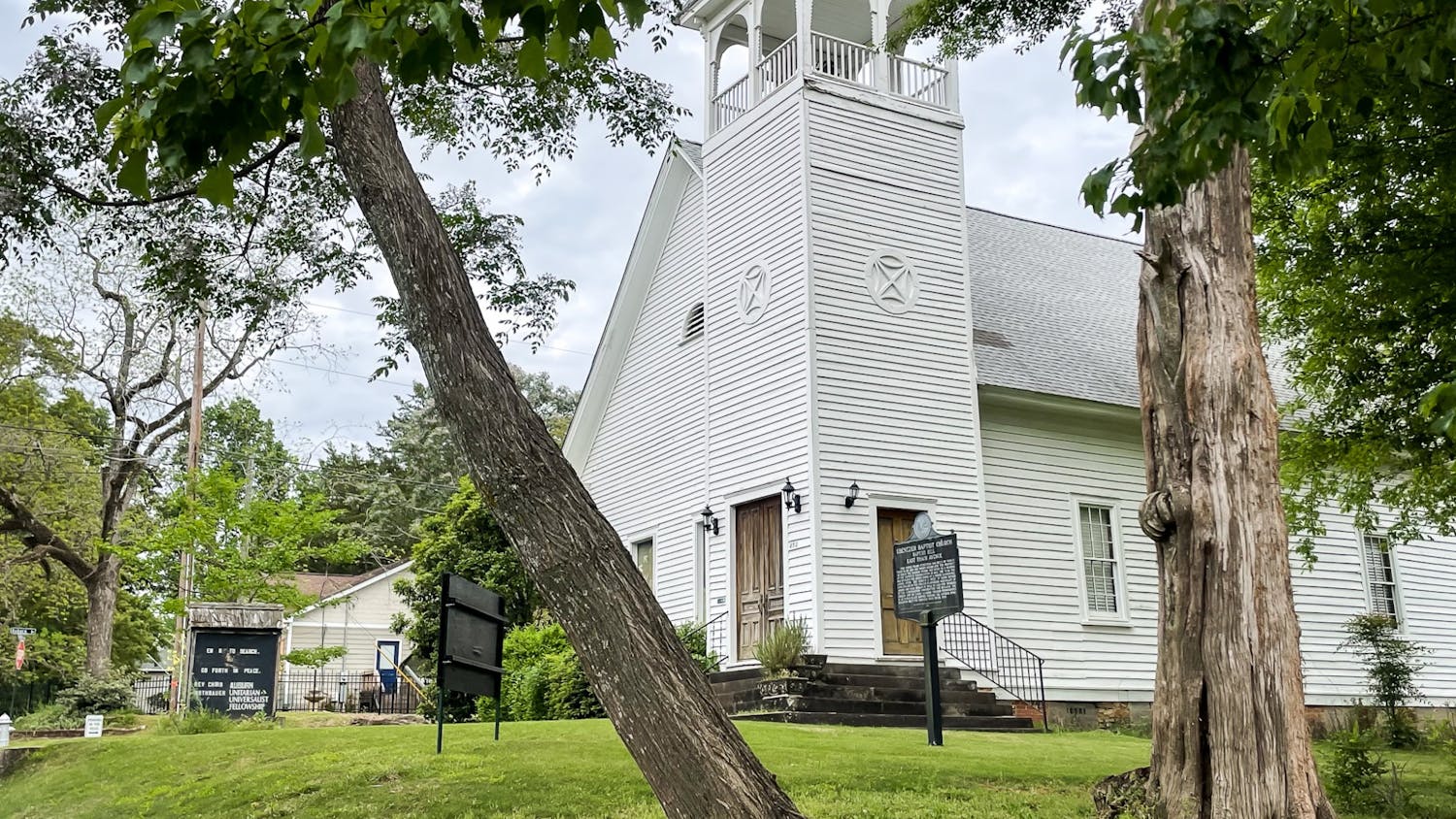Since my mom taught me to read when I turned three, it has been one of my favorite things to do. Now, at the age of 20, I am still drawn to reading. Most of my favorite books that I’ve read are considered “challenged” or banned.
Book banning and unbanning have been prominent around the world since the 19th century. It started in 1873, when anti-slavery materials were banned, which in turn led to the Comstock Act.
The act states that it prevents any “obscene, lewd, lascivious, indecent, filthy or vile article, matter, thing, device or substance” from being mailed. The criminal code of the U.S. furthers this legislation in chapter 71, titled “obscenity.”
Across Alabama in 2023, there have been 12 attempts to restrict access to books and 74 titles challenged in those attempts. Nationwide, there were 4,240 books challenged in 2023.
Proposals for banning books are often for books that include “offensive” topics such as harsh language, drug use, alcohol, violence and sexual content. Some books are also challenged due to the abundance of racism.
The question I’ve always had when I hear about book banning on the news is: “why?”
I’ve noticed that “classic” books are among the most commonly banned. "Catcher in the Rye," "To Kill A Mockingbird," "Fahrenheit 451," "The Grapes of Wrath," "The Great Gatsby" and "I Know Why the Caged Bird Sings" have all been challenged for a multitude of reasons.
These books are some of the ones commonly found in high school curriculums, whether it be the entire novel or just a chapter for a lesson in class. These books have topics that need to be explored.
Books that explore “offensive” topics allow readers to challenge themselves and create critical thinking skills. Critical thinking skills are not only essential for an English class but for whatever you decide to pursue in life. Not allowing students access to these materials is taking away from student's learning and is overall hurting them in the long run.
“You never really understand a person until you consider things from his point of view — until you climb into his skin and walk around in it,” Atticus Finch said in "To Kill A Mockingbird."
The first time I read "To Kill A Mockingbird," I was a freshman in high school. It was a part of our curriculum, regardless of the challenge. It was originally banned in 1977 and has been continuously banned since for offensive language, racism and how it fits to the age group it is being presented to.
The novel offers a perspective of racism in Alabama, which is what it was banned for. Banning the book for this reason enforces further racism and racial inequality. Similar to banning diversity, equity and inclusion programs across America, banning a book because it’s deemed “racist” is an erasure of reality.
"Gone with the Wind," written in 1936 and challenged for racism and the portrayal of rape, is commonly compared to "To Kill A Mockingbird." However, it receives praise and is even romanticized among readers and watchers of the film — although, it shouldn’t be romanticized.
If anything, "Gone with the Wind" should receive the same criticism that "To Kill A Mockingbird" once received. If Atticus Finch can be “held accountable” for doing something that is inherently right, then Scarlett O’Hara should be “held accountable” for doing whatever it takes to come out as victorious. In this case, "accountability" seems extremely racist and extremely wrong.
Where do we draw the line for a book that is “appropriate” for teaching in schools versus a book that is deemed offensive for the general public?
“Don’t ever tell anybody anything. If you do, you start missing everybody,” Holden Caulfield said in "Catcher in the Rye."
"Catcher in the Rye" has been up for banning since 1986, 35 years after its publication, mainly due to the abundance of sexual content. The work has also gained traction from the case of Mark David Chapman, murderer of John Lennon, thinking he was similar to Holden Caulfield.
Holden is a teenage boy dealing with the loss of his brother. His actions stem from attempting to deal with this loss and as a result of simply growing up. He also reacts this way to having an influential person in his life aiming to abuse him sexually.
Holden claims that he’d like to be the “catcher in the rye” to protect children and their innocence. Protecting them from the evils of the “rye,” or adulthood, is something that anyone would want to do to heal their inner child and protect others from that harm.
If this book has truly taught me anything about the real world, it's that officials in power tend to think like Holden Caulfield. They want to be catchers in the rye; they want to save the youth from something that isn’t causing harm.
I doubt that these reasons would persuade a lawmaker to postpone their motion to ban or challenge a book, but I hope it at least encourages you to pick a book that’s been “banned” or deemed “unworthy.” Behind a book that has been “banned” is a reader that is furthering themselves in thinking. Don’t attempt to be a catcher in the rye — give something new a chance. Don’t close yourself off from possibilities because someone isn’t interested.
Do you like this story? The Plainsman doesn't accept money from tuition or student fees, and we don't charge a subscription fee. But you can donate to support The Plainsman.

Brychelle Brooks, senior majoring in public and professional writing with a minor in information systems, has been with The Auburn Plainsman since August 2023. She previously served as the Campus Reporter, Opinion Editor and Newsletter Editor. She is currently serving as the Editor-in-Chief.





